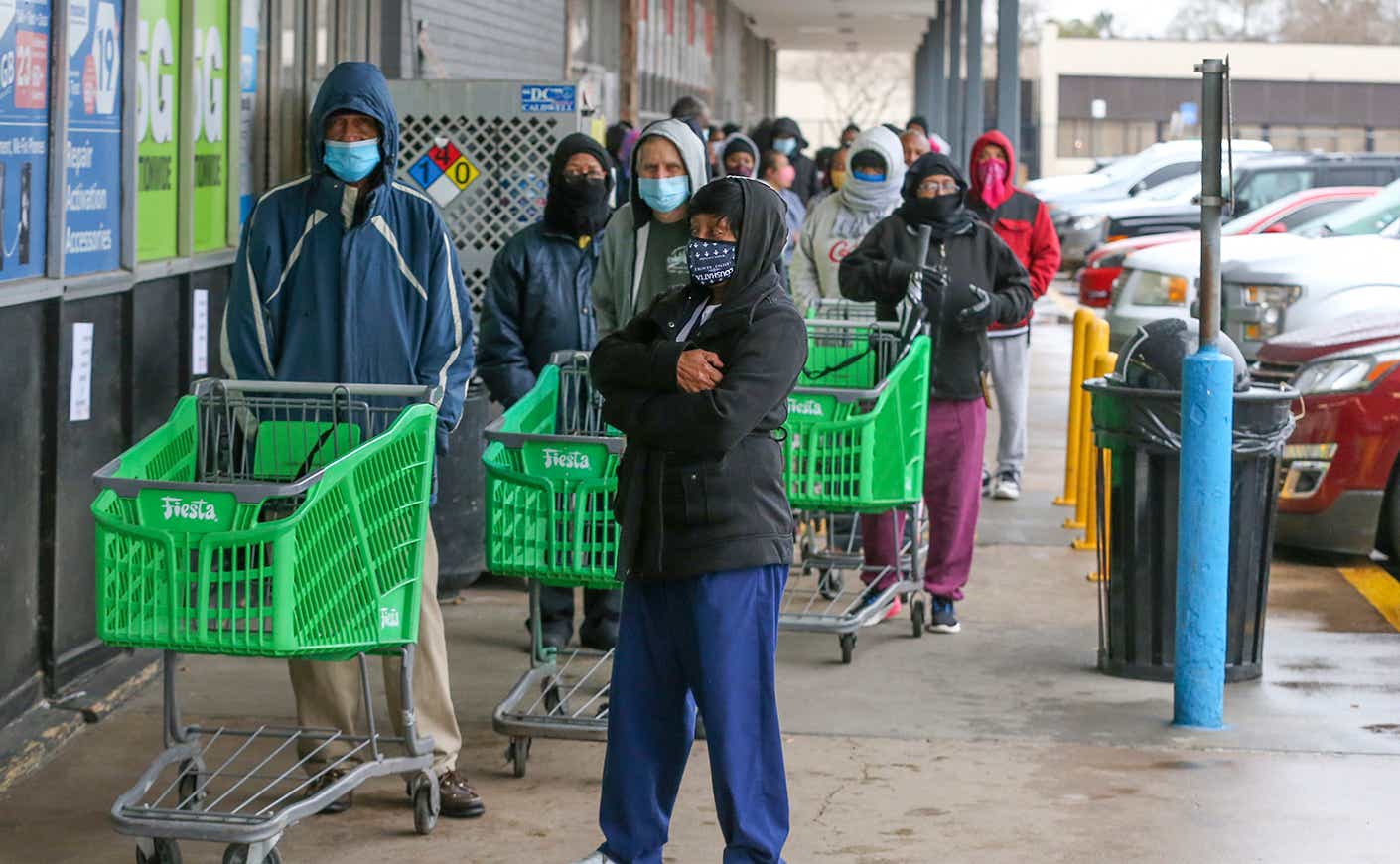Holthaus' work has been featured in the Wall Street Journal, Grist, and other outlets. Subscribe to his climate newsletter, the Phoenix, and find him on Twitter.
This week, one of the worst winter storms in US history is hitting the deep South. Monday was the coldest day in Houston since the 1950s, and the next morning was even colder. Snow fell on the border with Mexico. The incredibly cold air spontaneously turned into snow flurries generated by the heat of the refineries near Galveston. Over the normally-warm Gulf of Mexico, sea smoke formed – a cold-weather phenomenon more typical in the Arctic. It was the first time ever that the National Weather Service issued a winter storm warning for every single county in Texas.
It’s now become the largest forced blackout in American history – and a humanitarian crisis. On Monday, officials declared an “electric grid emergency” and intentionally plunged one-third of the people in Texas into darkness amid bitter cold and surreal scenes of snow and ice in a desperate attempt to preserve the state’s power network.
The burden of this storm – and the years of neglect that led up to it – has not and will not fall equally. There are reports of low-income neighborhoods and communities of color having their power cut before wealthy neighborhoods. Tent camps of asylum seekers along the border had to endure freezing weather while being detained. In the Rio Grande Valley, which has some of the highest rates of Covid-19 in the country, farm workers are facing the prospect of an entire season’s worth of crops ruined by the ice. Kids were admitted to the hospital for carbon monoxide poisoning as families burned what they could to keep warm. And those who were lucky enough to keep their power are facing astronomical electric bills running into four digits.
What we saw this week in Texas was a complete system failure, an example of the rupture of the new kinds of society-wide cracks that the climate emergency is creating.
As bad as it was, it could have been much, much worse: An official with the Electric Reliability Council of Texas, the organization that manages Texas’s power grid, said the state was “seconds and minutes away” from a catastrophic collapse that could have put millions of people in the dark for months.
This is the kind of disaster that climate scientists have been planning for and warning about for a long, long time.
Texas gets more than 70% of its electricity from coal, oil, and gas. It operates its own entirely separate electric grid from the rest of the United States in part so its utilities can evade federal regulations and turn a bigger profit. And after decades of being a hotbed of climate denial, this week the state’s leaders proved that they are woefully unprepared for escalating disasters in an escalating climate emergency.
Far from being the cause of this week’s troubles, renewable energy like wind and solar held up well in the cold Texas weather remarkably well, at least when compared to coal, natural gas, and nuclear. Air pollution from fossil fuel generated electricity quadrupled this week as old, expensive, and dirty power plants switched into emergency mode. Virtually all the megawatts offline were attributed to lost generation from fossil fuel power plants that failed.
Even in the midst of all this tragedy, Texas politicians were shilling for the fossil fuel industry and falsely trying to blame the disaster on renewable energy.
Modernizing the grid and moving to storable renewable energy is the answer to avoiding disasters like this one, not the problem. Most importantly, the democratizing force of renewable energy – where communities can come together to self-advocate and collectively own their own power sources – forms the model of a zero-carbon, resilient society built on mutual aid and care that was lacking this week.
After nearly a year of pandemic, recession, and racial uprising, this week Texans were on their own, again.
A hospital in Austin was evacuated after losing power, heat, and water. In Arlington, firefighters diverted water from fire hydrants to two hospitals so they could keep up water pressure. Darrell Pile, chief executive of the Southeast Texas Regional Advisory Council, which conducts disaster planning, said the cold snap created a public health crisis worse than 2017’s Hurricane Harvey, the most damaging storm in Texas history. “We have never had this many hospitals impacted simultaneously,” he told the Washington Post.
All of this also shows the hypocrisy of people in the pocket of the fossil fuel industry – rich politicians like Ted Cruz jetting off to Cancun – and how they are able to personally escape a climate emergency that's of their own making.
This is what happens when we ignore climate change for too long. This is what happens when our leaders embody an ethic of kicking that can down the road, instead of taking bold steps to plan ahead for the future.
A world filled with paralyzing climate disasters is not inevitable, but it will require our leaders to embrace science and strengthen our democracy so that the solutions we already have can start making people’s lives better as soon as possible.









